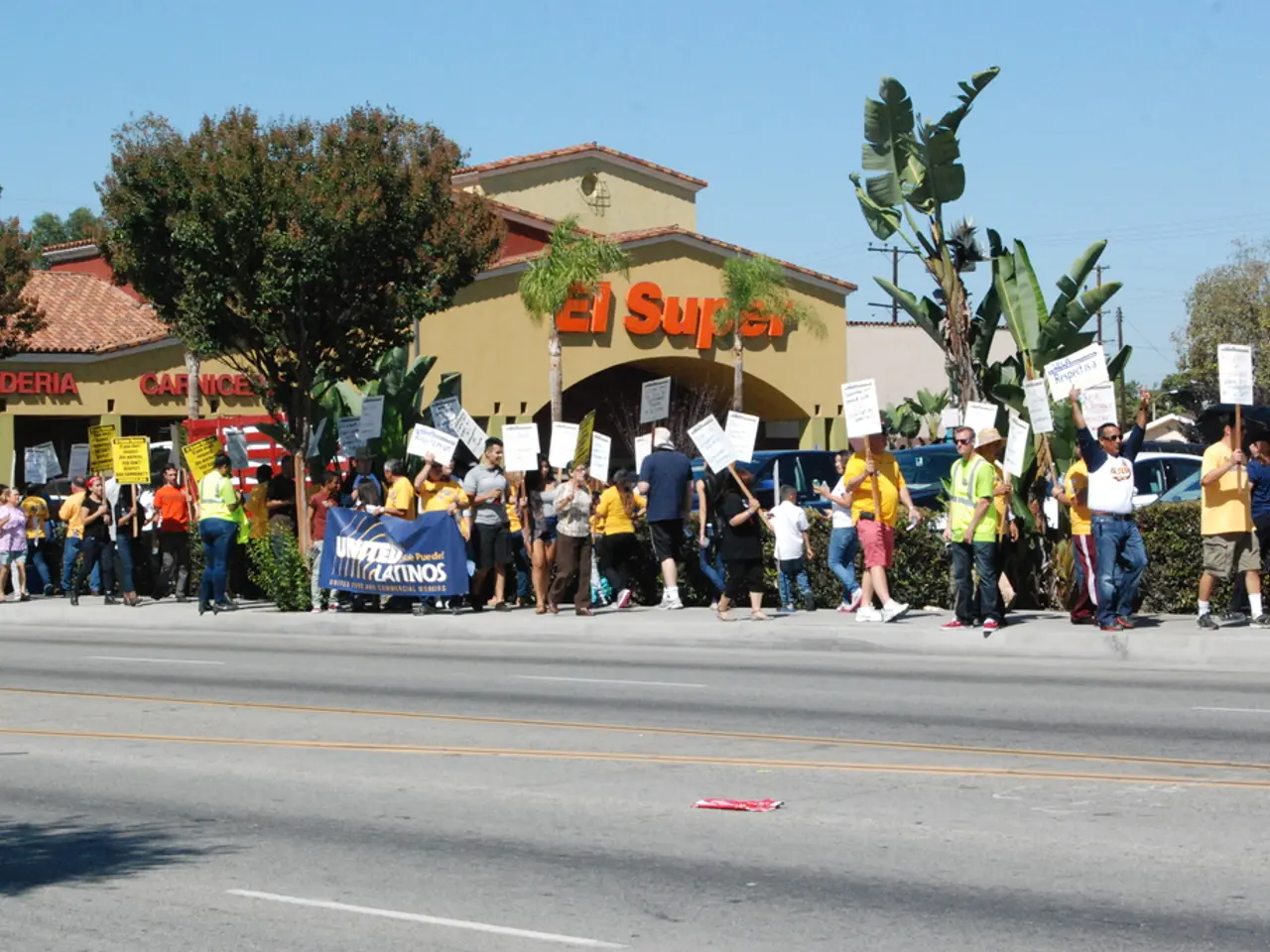Strategies for Enhancing Diverse Participation in Outdoor Activities Under Biden's Administration
The Biden administration is taking steps to address long-standing issues of accountability, equity, and accessibility in public lands. With a focus on historically marginalized communities, the administration aims to create a more inclusive and just environment for all.
Accountability and Transparency
There has been a growing need for better accountability in incidents between law enforcement and the public on public lands. Currently, there is no database keeping track of injuries or deaths caused by Park Police or park rangers. To address this, the Department of Interior could establish a team to prioritize this issue and ensure transparency.
New Leadership
The U.S. Park Police has a new Black woman chief, Pamela Smith, who serves national parks since 1791. Her leadership could bring about significant changes in the way law enforcement operates within public lands.
Climate Investments and Environmental Justice
President Joe Biden has promised that 40 percent of federal investments on climate will go toward disadvantaged communities. This commitment could help address environmental injustices and empower marginalized communities to have a greater voice in land stewardship and resource management.
Addressing Historical Inequities
Black people were historically relegated to certain areas in national parks where they couldn't mingle with white visitors. The Biden administration could establish new parks and monuments that celebrate forgotten history, particularly relevant to Black, Indigenous, Latinx, Asian, and queer communities.
Protecting Public Lands
The administration is taking steps to protect coastal and public lands from harmful industrial activities, safeguarding the health and access to clean natural spaces for low-income and BIPOC communities. They are also advocating for policies that balance conservation with responsible access on public lands, preserving parks and lands accessible to diverse communities.
Urban Park Accessibility
To make urban parks more accessible to BIPOC communities, the administration is considering equity-focused environmental policies, funding for BIPOC-led land and park access initiatives, and ensuring inclusivity in federal land management and urban planning. While specific detailed proposals for urban park access are not yet available, the administration's broader approach offers relevant context.
Modernizing Law Enforcement
Park ranger uniforms may feel threatening to undocumented people or communities of color who don't have healthy relationships with law enforcement. Modernizing these uniforms to feel more welcoming could be beneficial.
Connecting Urban Communities to Nature
Organisations like The Wilderness Society's Urban to Wild program aim to connect urban communities to nature. The COVID-19 pandemic has underscored the importance of nature and public spaces for getting outside, moving, and connecting.
Building Incentives for Urban Parks
Joel Pannell, the associate director of the Sierra Club's Outdoors for All campaign, wants to see the federal government build incentives for states and localities to be more intentional when designing urban parks. Juan Pérez Sáez, a member of the Next 100 Coalition, suggests the federal government can accomplish this by working directly with the Department of Transportation to allocate dollars to local governments committed to bridging the gap between urban communities and wilderness areas.
Addressing Indigenous Relationships to the Land
The erasure of Indigenous relationships to the land is a legacy that can begin to be addressed by calling these places by their rightful first names rather than their colonized ones. The Biden administration could encourage federal agencies and states to rename some of our mountains or trails via an executive order.
Body Cameras and Historical Incidents
The U.S. Park Police has implemented a new policy requiring officers to wear body cameras, starting in San Francisco. This policy could help increase accountability and transparency in incidents between law enforcement and the public.
However, under President Donald Trump, park rangers moonlighted as border agents, and Interior Department agents responded violently to Indigenous peoples protesting the border wall. These incidents highlight the need for ongoing efforts to ensure law enforcement agencies evolve past training and center community relationships with officers to ensure their behavior reflects their role in ensuring safety and good experiences for the public.
[1] Source: https://www.theguardian.com/environment/2021/apr/22/joe-biden-promises-to-protect-public-lands-from-industrial-activities [3] Source: https://www.washingtonpost.com/national/us-department-of-agriculture-cancels-grants-for-diversity-equity-and-inclusion-programs/2021/07/27/1c9f6c34-480d-11eb-97cd-f86f6242b6a4_story.html [5] Source: https://www.npr.org/2021/04/22/989122752/biden-administration-announces-new-climate-policies-for-public-lands-and-oceans
- The Biden administration's focus on historically marginalized communities extends to the realm of environmental science, with a promise to track incidents involving park rangers and the public for accountability and transparency.
- Subscribing to a newsletter could provide updates on the Biden administration's efforts in promoting environmental justice by allocating climate investments to disadvantaged communities, creating more inclusive public lands, and addressing historical inequities.
- As part of the lifestyle section in a magazine, one could find articles highlighting art projects that reflect on the role of marginalized communities in shaping the environment and advocating for environmental justice.
- In the realm of general news, reports might cover the politics surrounding policies that prioritize accessibility and justice for low-income and BIPOC communities in urban park development and public land management.
- Through collaborations with organizations such as The Wilderness Society and the Sierra Club, community-led initiatives seek to promote environmental education and connect people from diverse backgrounds to nature, contributing to a more just and equitable outdoor lifestyle.





